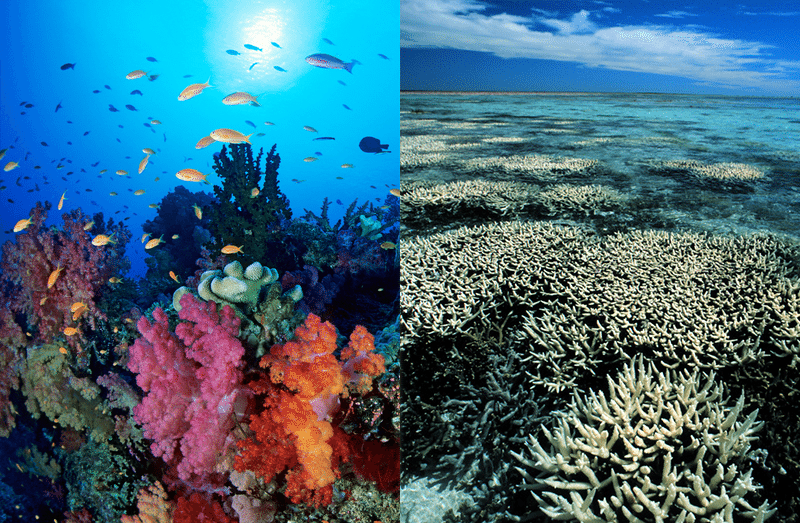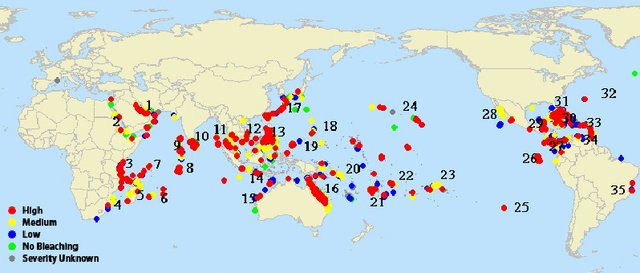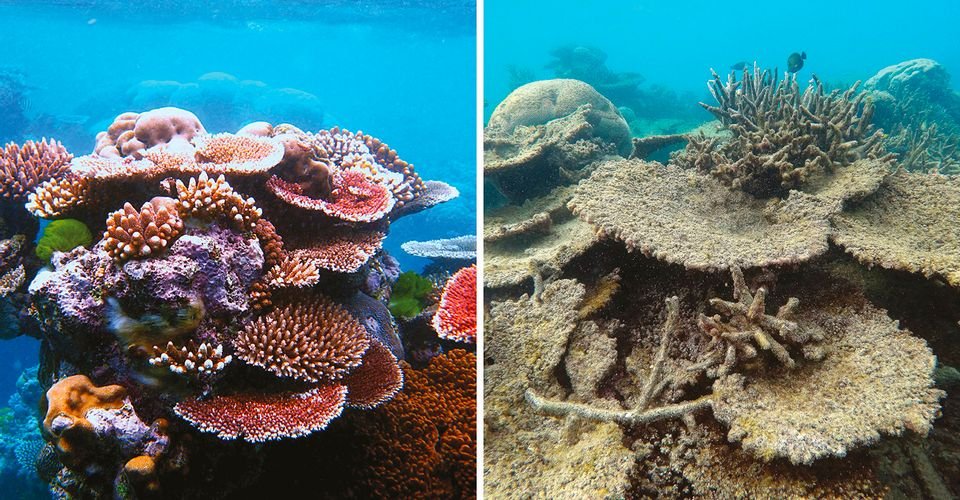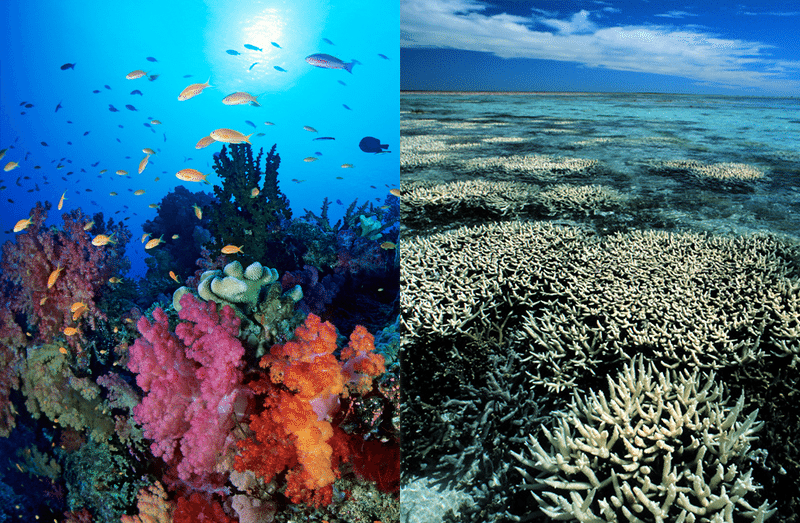To our horror, another mass coral bleaching event is striking the Great Barrier Reef, with water temperatures reaching up to 3℃ higher than average in some places. This would be the sixth such event since the late 1990s, and the fourth since 2016.
A monitoring mission from the United Nations arrives in Queensland today to inspect the reef and consider listing the World Heritage site as “in danger”.
 Great Barrier Reef is nearing its tipping point, beyond which the reef will lose its function as a viable ecosystem. This is not only due to climate change exacerbating marine heatwaves, but also higher ocean acidity, loss of oxygen, pollution, and more.
Great Barrier Reef is nearing its tipping point, beyond which the reef will lose its function as a viable ecosystem. This is not only due to climate change exacerbating marine heatwaves, but also higher ocean acidity, loss of oxygen, pollution, and more.
The reef is suffering environmental conditions so extreme, we’re struggling to simulate these scenarios in our laboratories. Even though Australia has world-class facilities, we are proverbially beating our heads against the wall each year as conditions worsen.
Coral Bleaching is happening everywhere!

What is coral bleaching and why does it happen?
Corals are animals that live in a mutually beneficial partnership with tiny single-celled algae called “zooxanthellae” (but scientists call them zooks).
Zooks benefit corals by giving them energy and color, and in return the coral gives them a home in the coral tissue. Under stress, such as in too-hot water, the algae produce toxins instead of nutrition, and the coral ejects them.
Without the algae, the corals begin to starve. They lose their vibrant colors, revealing the bright white limestone skeleton through the coral tissue.
If stress conditions abate, the algae can return and coral can recover over months. But if stress persists, the corals can die – the skeletons begin to crumble, removing vital habitat for other species.

How will this hurt marine life?
A healthy Great Barrier Reef is home to at least 1,625 species of fishes, 3,000 species of molluscs, 630 species of echinoderms (such as sea stars and urchins), and the list goes on.
Marine life in coral reefs have three options in warming waters: adapt, move, or die.
They can adapt
Over generations, species can make changes at the molecular level – their DNA – so they’re more suited to or can adapt to new environmental conditions. This evolution may be possible for species with fast generation times, such as damselfishes.
But reef species with slower generation times can’t keep pace with the rate we’re changing their habitat conditions. This includes the iconic potato cod and most sharks, which take a around a decade or longer to reach sexual maturity.

They can move
Some species of reef fishes may start moving to cooler waters before the harmful effects of warming take hold.
But this option isn’t available to all species, such as those that depend on a particular habitat, certain resources, or protection. This includes coral, as well as coral-dwelling gobies and several damselfishes.
A citizen science project called Project RedMap, has been documenting the poleward migration of reef fish species due to climate change. Studies have found that larger, tropical fishes with a high swimming ability are more likely to survive in temperate waters, such as some butterflyfishes.
 Or they can die!
Or they can die!
The third option is one we don’t like to talk about, but is becoming more of a threat.
If marine life can’t adapt or move , we’ll see extinctions at a local scale, total extinction of some species, and dramatic declines in fish populations.
We’ve known for a long time the most important step to save the reef: cutting emissions to stop global warming. Indeed, future projections of coral bleaching from the 1990s suggested that frequent and severe events would begin from the late-2010s – and they’ve been alarmingly prescient.
The Great Barrier Reef’s continuing demise is one of the most visible examples of how our inaction as humans has profound and perhaps irreversible consequences. We are rapidly accelerating toward the tipping point. The end of the reef!
#GreatBarrierReef #ClimateChange #Climatecrisis

